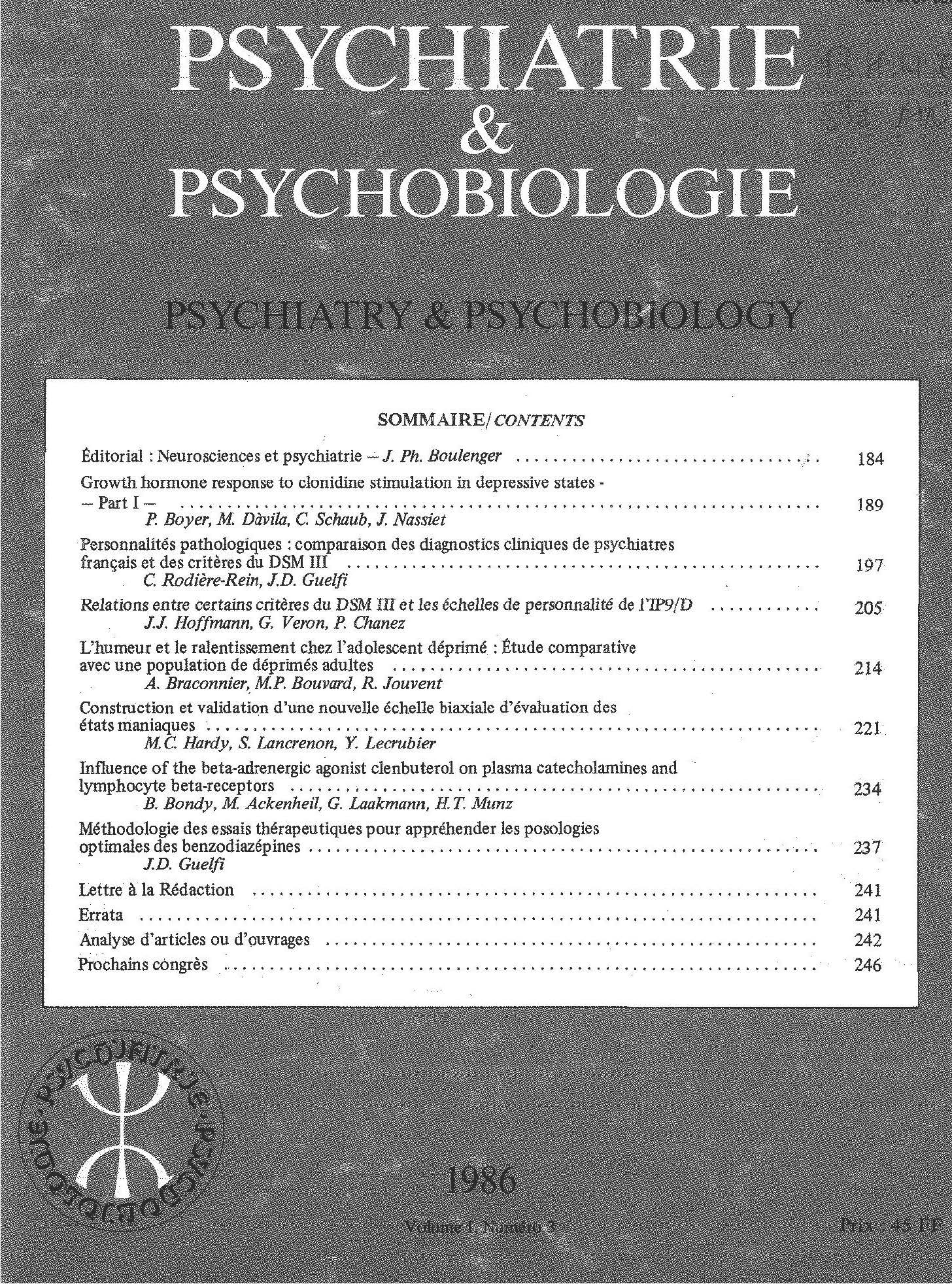No CrossRef data available.
Article contents
L'évitement de situations à caractère social : syndrome ou symptôme ?
Published online by Cambridge University Press: 28 April 2020
Résumé
L’évitement de situations à caractère social définit classiquement le cadre des phobies sociales. Cependant, deux problèmes diagnostiques peuvent se poser chez de tels patients. Le premier concerne les limites existant entre ce syndrome et les troubles de la personnalité décrits sous des termes divers (personnalité évitante, anxiété d’évaluation, troubles des aptitudes sociales). Le second, est celui du diagnostic differentiel entre phobies sociales et agoraphobie, problème fréquemment rencontré en pratique et pour lequel seule une analyse cognitive précise permettra d’orienter le diagnostic. Des recherches sont en cours dans le but de vérifier l’hypothèse selon laquelle les phobies sociales relèveraient d’un mécanisme biologique distinct de celui de l’agoraphobie, mécanisme dont témoignerait une sensibilité particulière de ce syndrome aux effets thérapeutiques des IMAO.
Summary
Avoidance of social situations is the classic definition of the scope of social phobias. However, two diagnostic problems may arise in such patients. The first involves the limits which exist between this syndrome and personality disorders described in different terms (avoidance personality, evaluation anxiety, disorders of social skills). The second involves the distinction between social phobias and agoraphobia, a problem frequently encountered in practice, and where precise cognitive analysis is the sole means of pin-pointing the diagnosis. Research is presently underway to confirm the hypothesis whereby social phobias originate in a different biological mechanism from that of agoraphobia: the said mechanism is possibly revealed by this syndrome's exceptional sensitivity to the therapeutic effects of MAOI antidepressants.
- Type
- Research Article
- Information
- Copyright
- Copyright © European Psychiatric Association 1987



Comments
No Comments have been published for this article.